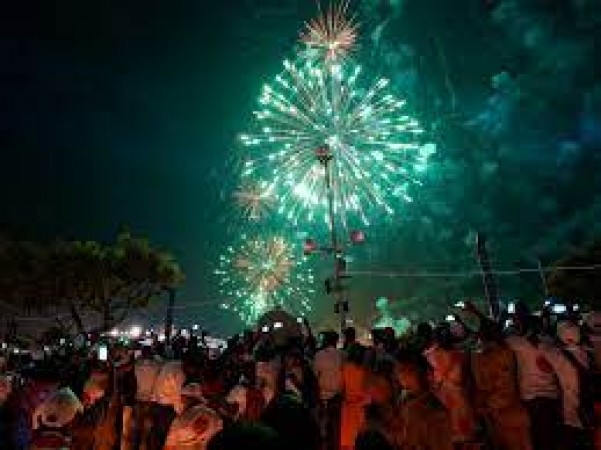
Diwali, the Festival of Lights, is a cherished and widely celebrated occasion in India. One of the most anticipated aspects of Diwali is the bursting of fireworks. However, the origin of this tradition has sparked a debate - is it rooted in Hinduism or influenced by the Mughals? Let's delve into the historical context before lighting up the skies.
Diwali, also known as Deepavali, symbolizes the triumph of light over darkness and good over evil. It is a time when homes are adorned with diyas (oil lamps), colorful rangoli designs, and, of course, the night sky dazzles with fireworks.
The festival of Diwali is deeply rooted in Hinduism and has been celebrated for centuries. It signifies the return of Lord Rama after defeating Ravana, as described in the epic Ramayana.
Diwali is also dedicated to Goddess Lakshmi, the Hindu goddess of wealth and prosperity. Hindus worship her and seek her blessings during this time.
During the Mughal rule in India, the tradition of fireworks found its way into the celebration of Diwali. Mughal emperors, known for their grandeur, may have contributed to the spectacle.
Mughal influence on Diwali led to the fusion of cultures, adding a regal touch to the festivities. This is where the debate begins.
The question of whether the tradition of fireworks on Diwali is rooted in Hinduism or influenced by the Mughals is a complex one. It's a fusion of both, creating a unique celebration.
This fusion is an example of India's rich history of cultural exchange, where traditions from different eras and dynasties intermingle.
Across India, Diwali is celebrated with a myriad of regional customs, reflecting the country's diverse cultural landscape.
Fireworks, regardless of their origin, have become a symbol of joy and light during Diwali.
Diwali is a unifying festival that transcends religious and cultural boundaries. It is celebrated by people of various faiths and backgrounds.
In recent years, there's a growing awareness of the environmental impact of fireworks, leading to efforts to celebrate a more eco-friendly Diwali. As Diwali 2023 approaches, it's essential to recognize that the tradition of fireworks on this festival is a blend of both Hinduism and Mughal influence. It's a testament to India's rich and diverse history.
Discovering Hyderabad’s Best Dessert Spots
Consume These 10 Foods in Winter for a Stronger Immune System
Start Your Mornings by Eating This One Thing, and Watch Your Waist Slim Down in a Few Days